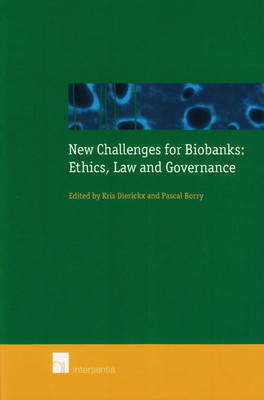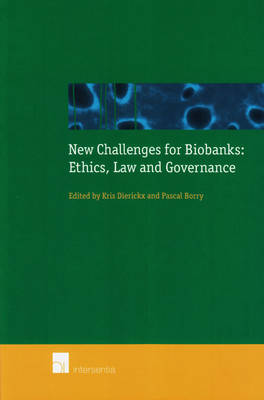
- Afhalen na 1 uur in een winkel met voorraad
- Gratis thuislevering in België vanaf € 30
- Ruim aanbod met 7 miljoen producten
- Afhalen na 1 uur in een winkel met voorraad
- Gratis thuislevering in België vanaf € 30
- Ruim aanbod met 7 miljoen producten
Zoeken
New Challenges for Biobanks: Ethics, Law and Governance
Kris Dierickx, Pascal Borry
Paperback | Engels
€ 62,00
+ 124 punten
Omschrijving
The last few years have witnessed an important expansion in the collection and processing of human biological samples and related information data. Biobanks - huge repositories of human biological specimens - have a strategic importance for genetic research, clinical care, and future treatments. However, biobanks are facing many major ethical, legal, and governance challenges, including informed consent, privacy, ownership, commercialization, and harmonization. In addition, forensic DNA-databases raise specific issues. These databases can be an important tool for the police services in their search for the perpetrator of a crime, yet this raises ethical questions with regard to the relationship between liberty and security. This book - a publication of the European Commission funded research project GeneBanC - offers a rich source of material on the ethical, legal, and governance aspects of clinical biobanks, population biobanks, and forensic biobanks. It's research will be of interest to policy makers, academics, and legislators.
Specificaties
Betrokkenen
- Auteur(s):
- Uitgeverij:
Inhoud
- Aantal bladzijden:
- 278
- Taal:
- Engels
Eigenschappen
- Productcode (EAN):
- 9789050959742
- Verschijningsdatum:
- 1/12/2009
- Uitvoering:
- Paperback
- Formaat:
- Trade paperback (VS)
- Afmetingen:
- 165 mm x 248 mm
- Gewicht:
- 494 g

Alleen bij Standaard Boekhandel
+ 124 punten op je klantenkaart van Standaard Boekhandel
Beoordelingen
We publiceren alleen reviews die voldoen aan de voorwaarden voor reviews. Bekijk onze voorwaarden voor reviews.











